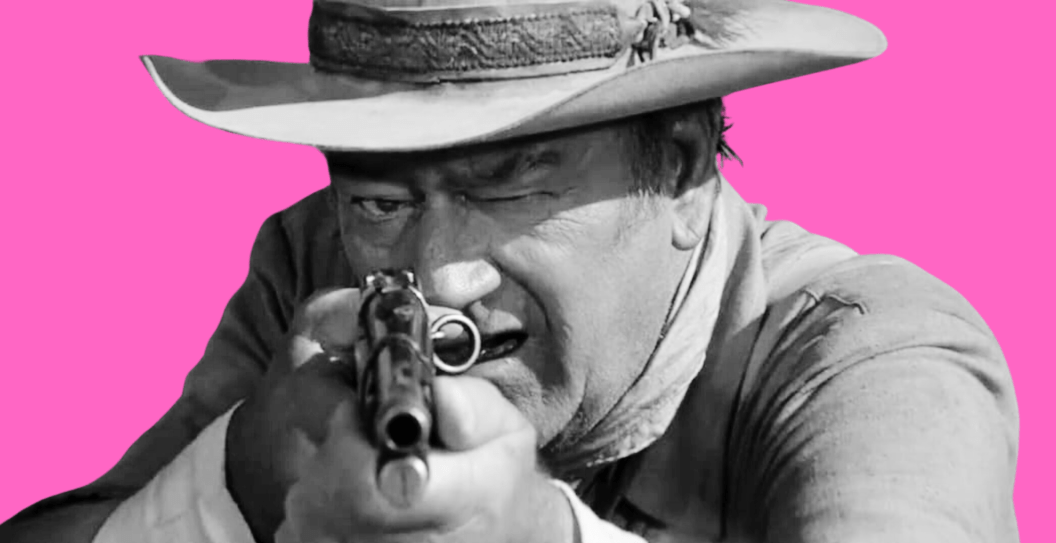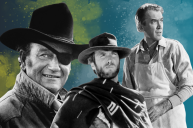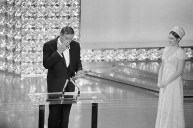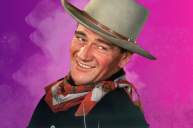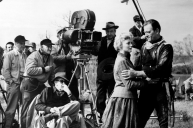He's the picture of tough-guy masculinity, but John Wayne almost certainly had a funny bone. The swaggering Western movie icon was all too happy to partake in a muddy brawl in "McLintock!" And don't tell me he didn't think Rooster Cogburn's scowl and eye patch combo was a match made in comedy heaven. Foremost in The Duke's comedic repertoire? His effortless ability to carry off truly unhinged character names — names that couldn't (shouldn't!) exist in real life. From the aggressively suave ('Guns' Donovan) to the downright ridiculous (Quirt Evans), we've compiled all the best, most iconic John Wayne character names and evaluated each one for style, syntax and, in some cases, cultural impact.
Videos by Wide Open Country
Below, you'll find all-time-great monikers from some all-time-great films and plenty of early B Westerns. There are elaborate, four-word names and rhyming pairs that will leave your tongue in knots. There are also single-syllable couplets and bizarre word combinations that serve as seriously cool Old West epithets. We've left out the names of real-life figures that The Duke has played on the grounds that we're looking for invention here. (William Tecumseh Sherman makes for wonderful word salad. But it resulted from a mixture of real-life family names, not from the overworked brain of a 1940s studio writer.)
Whether he's bringing you in hot or bringing you in cold, these are the greatest John Wayne character names of all time.
Rooster Cogburn - "True Grit" (1969), "Rooster Cogburn" (1975)
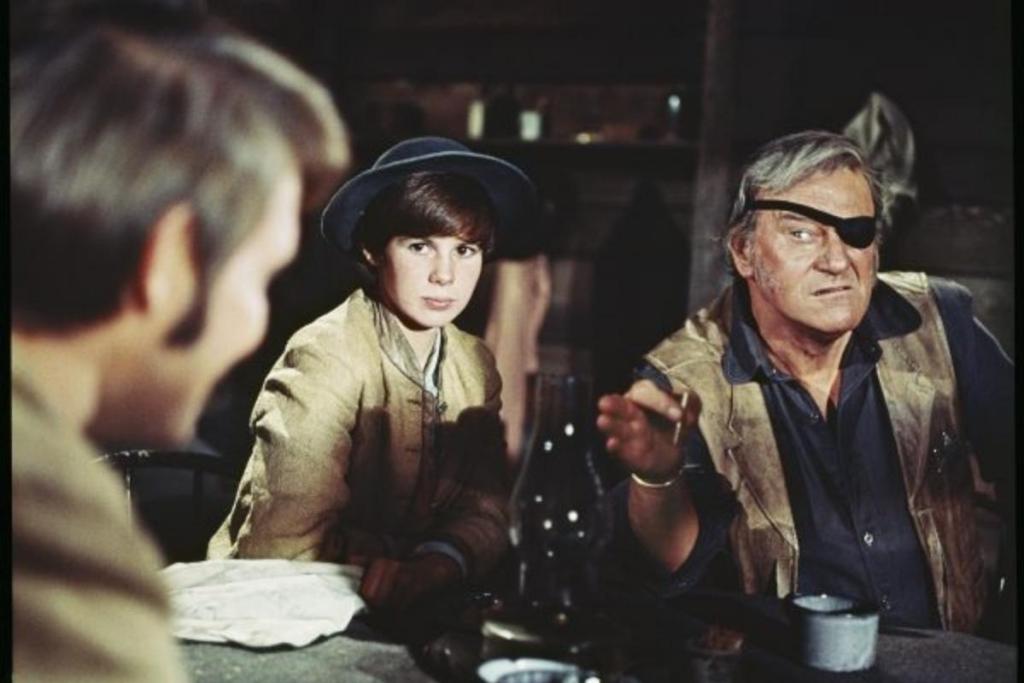
Camerique/Getty Images
Reuben J. 'Rooster' Cogburn is just funny enough to warrant sympathy. The drunken, one-eyed U.S. Marshal was John Wayne's only Oscar-winning role, and one which he reprised in 1975's "Rooster Cogburn."
Lon 'McQ' McHugh - "McQ" (1974)
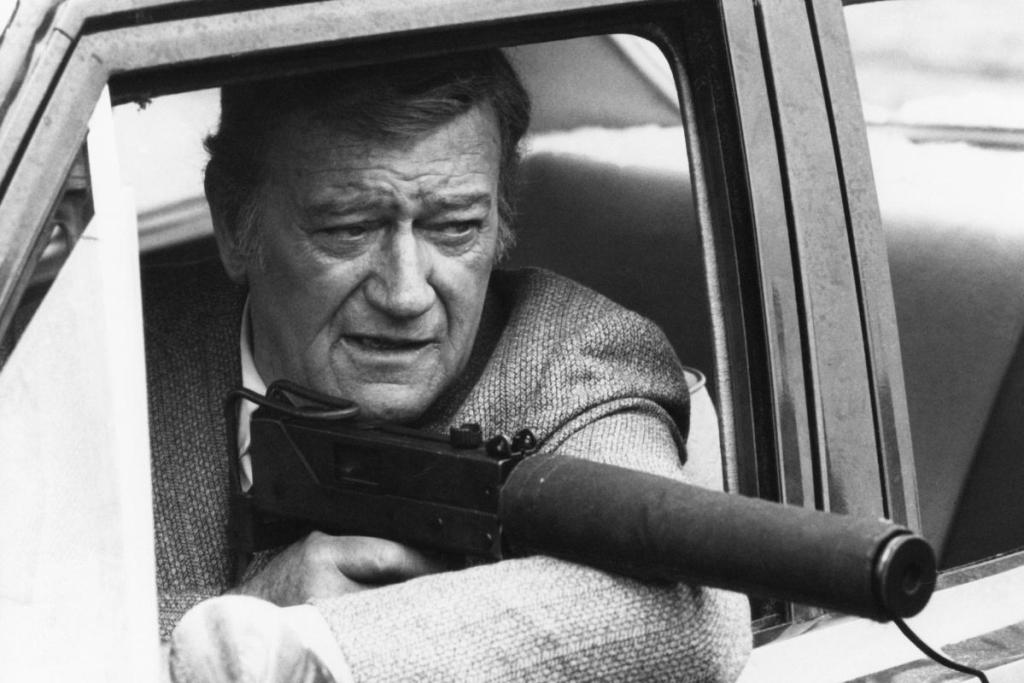
Screen Archives/Getty Images
Detective Lieutenant Lon 'McQ' McHugh (hilarious) was originally written for Steve McQueen, who had already perfected the big-city cop thing in "Bullitt" (1968). McQ, of course, prefers a massive machine pistol with a silencer to a sleek handgun. Because that won't blow your cover...
Jacob McCandles - "Big Jake" (1971)
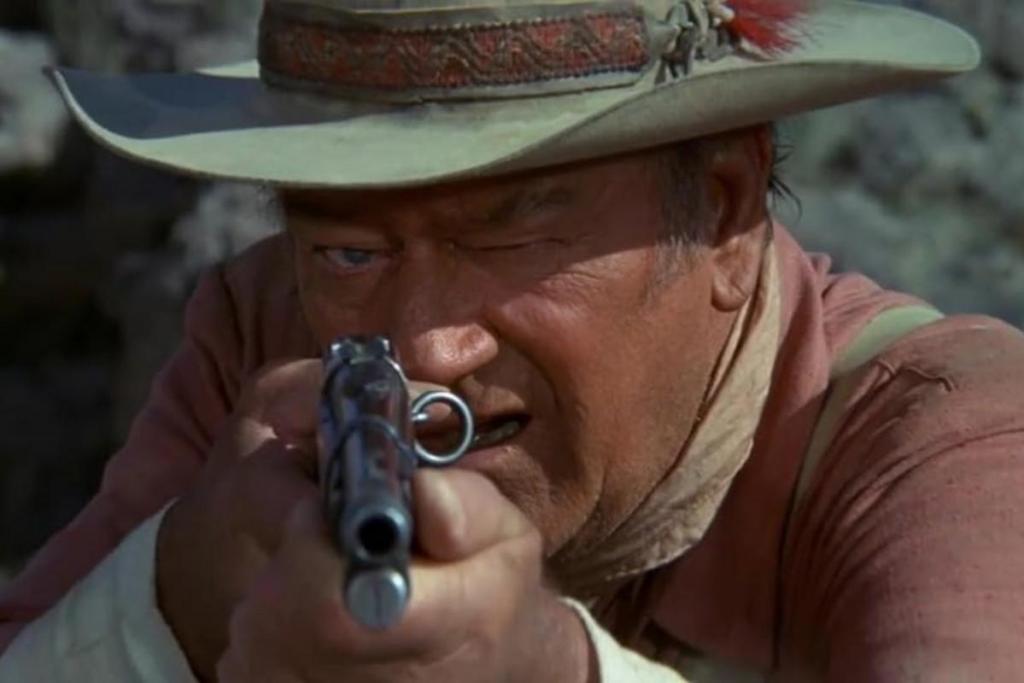
20th Century Fox
Jacob McCandles has big Mr. Bojangles energy, and we cannot get enough. John Wayne's sons, Patrick and Ethan Wayne, also appeared as younger McCandles in the film.
Chance Buckman - "Hellfighters" (1968)
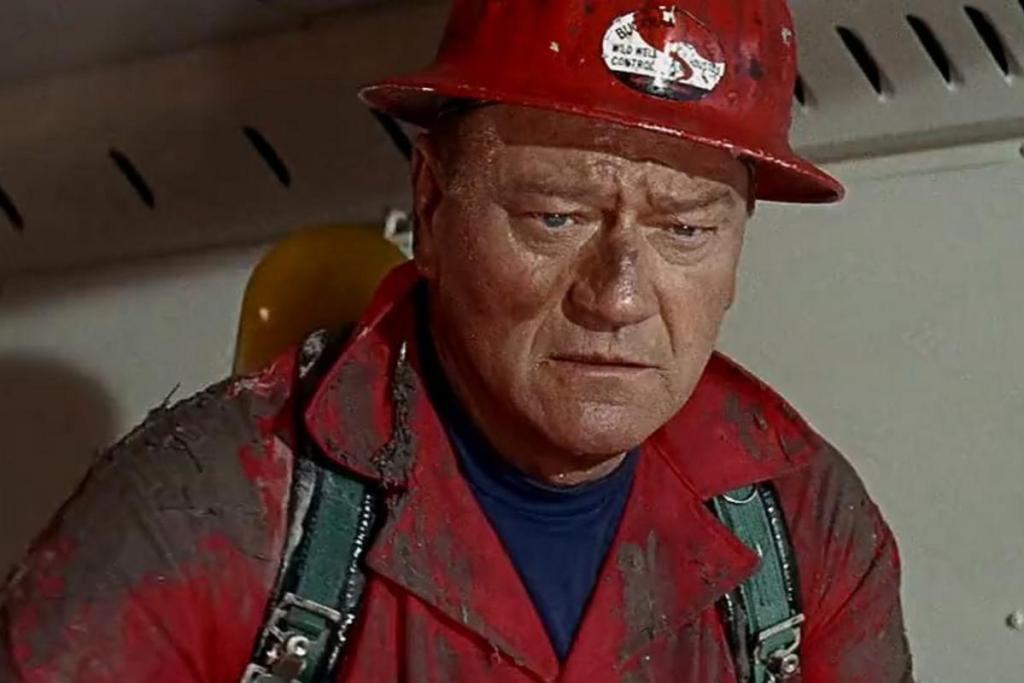
Universal Pictures
If Chance Buckman sounds like a divorcee who fights fires on oil rigs, that's because he is. Seeing John Wayne suit up in firehouse red to battle blazes is like seeing a dog walk on its hind legs. He would have crushed it on "Fire Country."
Taw Jackson - "The War Wagon" (1967)
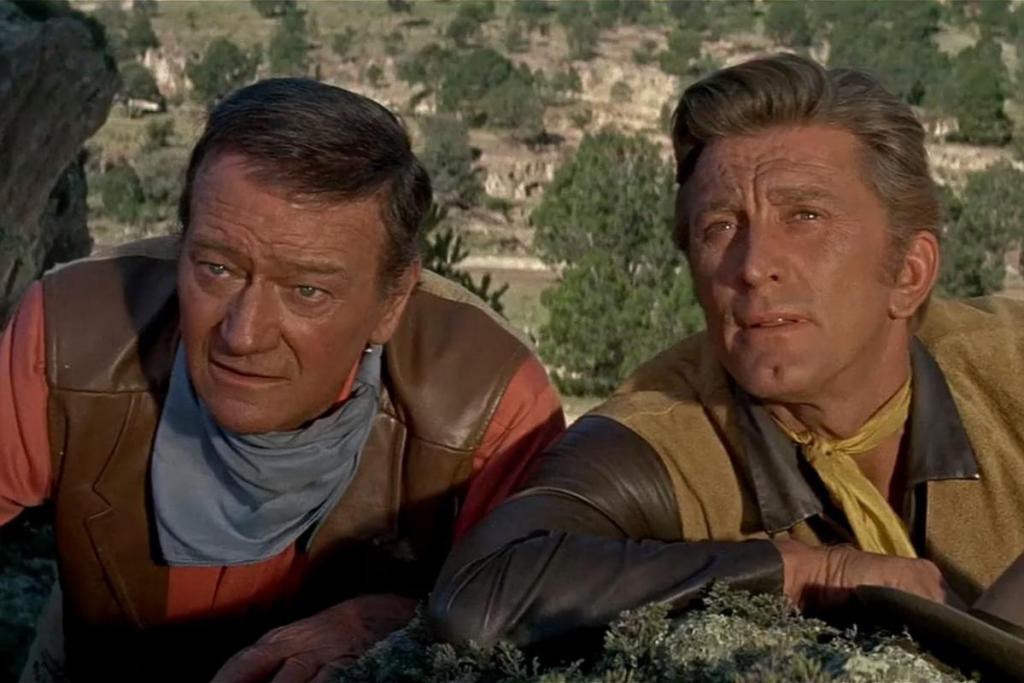
Universal Pictures
With a name like Taw, you can understand why this is one of John Wayne's only "loser" characters. Five years after he was shot, robbed and thrown in jail, Taw Jackson teams with his assailant, Lomax (Kirk Douglas), to stage the wagon heist of the century.
George Washington 'G.W.' McLintock - "McLintock!" (1963)
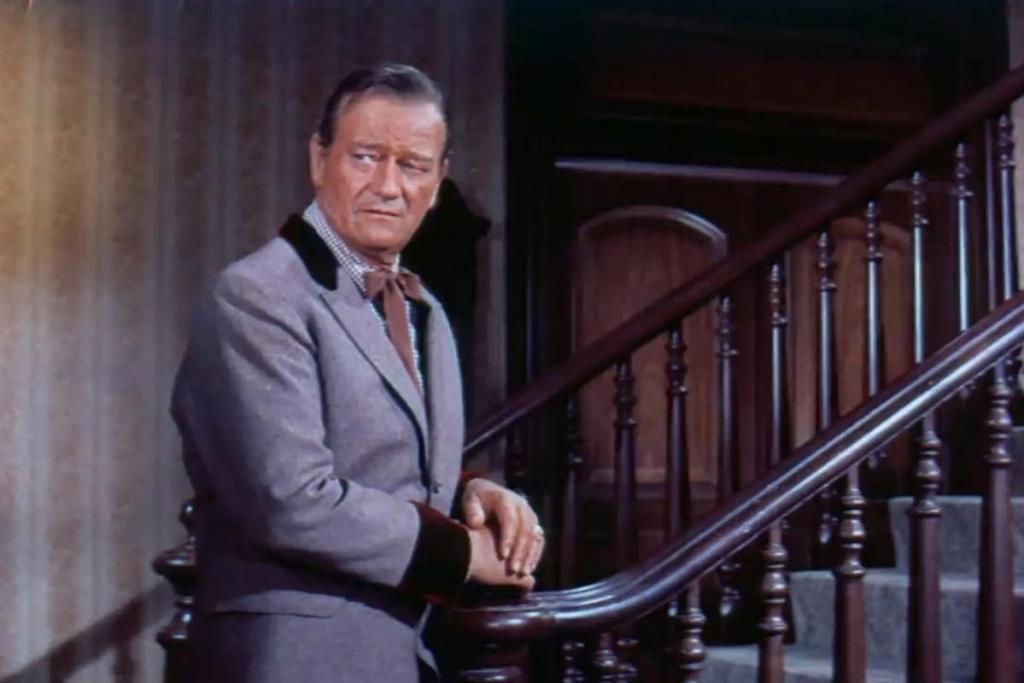
United Artists
George Washington McLintock is one of the stuffiest, funniest all-American names imaginable. There's the first president of it all, then the addition of a little Scotch-Irish for some Southern flair. And don't get us started on his estranged wife, Katherine Gilhooley McLintock. Supremely goofy stuff.
'Guns' Donovan - "Donovan's Reef" (1963)
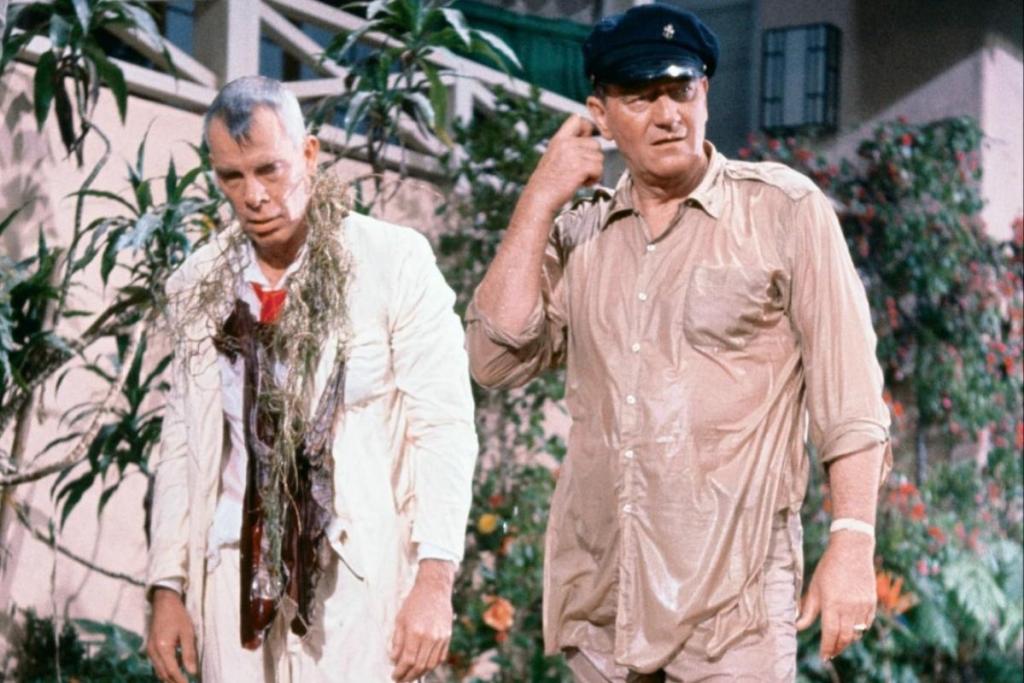
Paramount Pictures
Lee Marvin's character name, Thomas Aloysius 'Boats' Gilhooley (Gilhooley? Again?!), has it all over John Wayne's Michael Patrick 'Guns' Donovan. But the latter still makes our list for its lovely simplicity. Besides, Guns is the one who gets the South Sea reef named after him.
Tom Doniphon - "The Man Who Shot Liberty Valance" (1962)
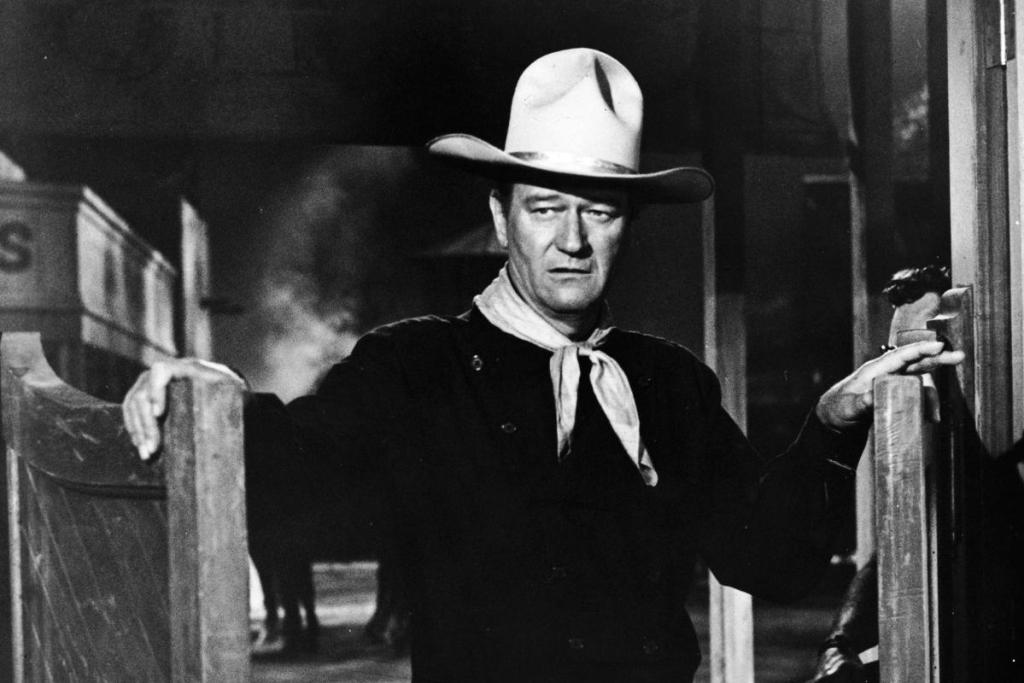
Paramount Pictures/Getty Images
Once again, Lee Marvin has the superior character name as Liberty Valance. But the near-rhyme of Tom Doniphon is begging for recognition. He's the origin of John Wayne's "pilgrim" catchphrase.
Capt. Jake Cutter - "The Comancheros" (1961)
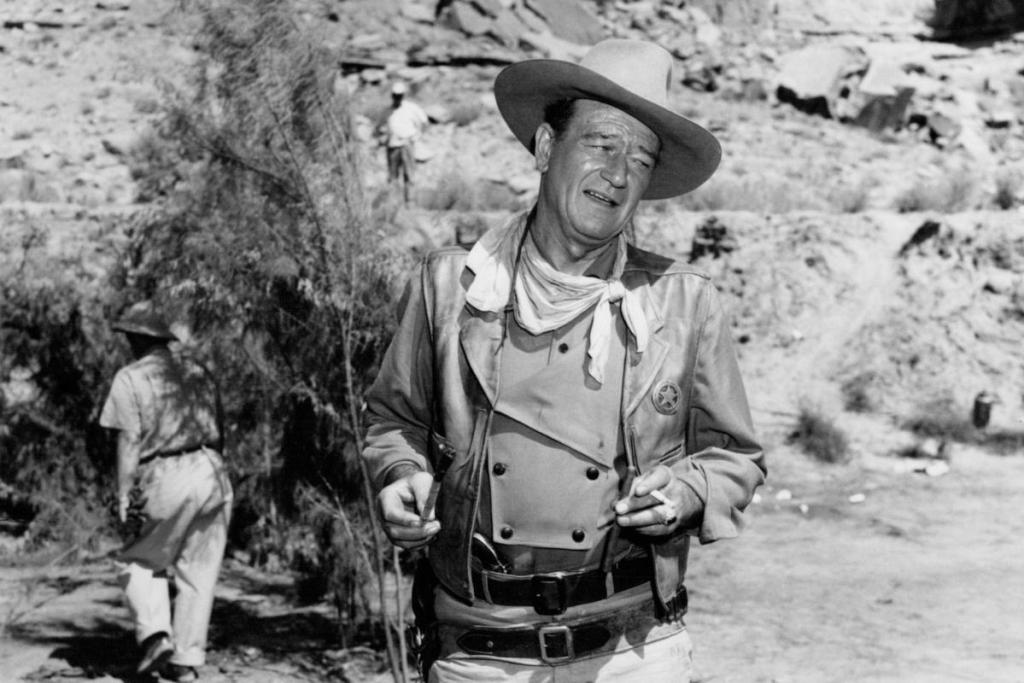
Silver Screen Collection/Getty Images
So Jake Cutter by itself isn't exactly mind-blowing. But Jake Cutter and his sidekick Paul Regret? That's a stage name. The film's original tagline is impressive: "Big Jake the Adventurer... Paul Regret the Gambler... Pilar the Gypsy beauty... Three With a Past... Destined to Cross and Clash... In a Kingdom of Killers!"
Joe January - "Legend of the Lost" (1957)
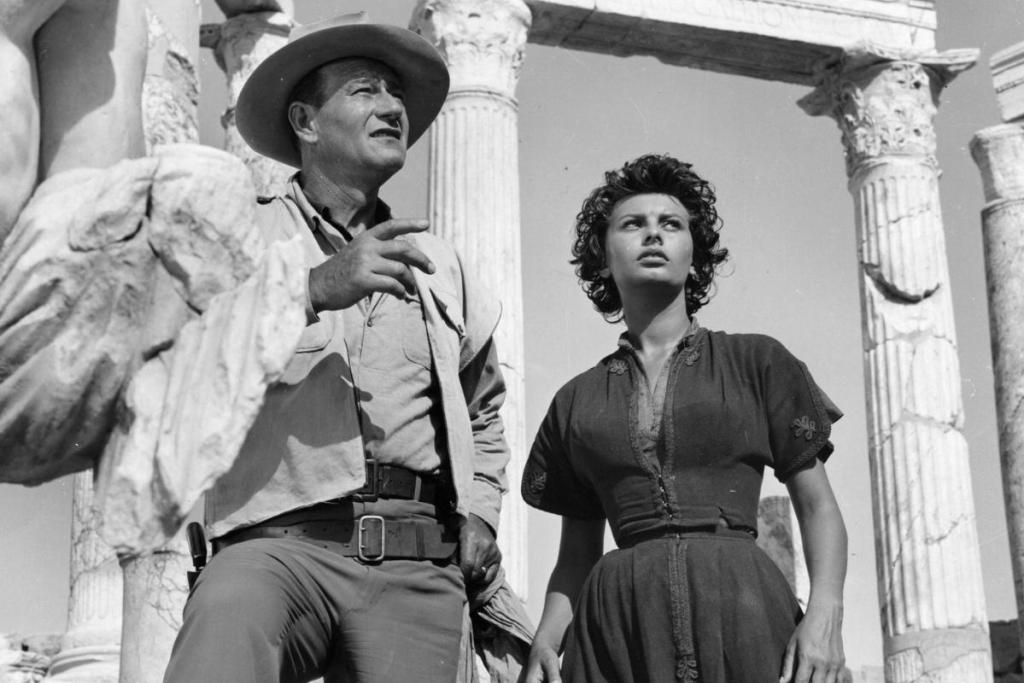
Keystone Features/Getty Images
John Wayne and Sophia Loren famously lacked chemistry in this Saharan desert adventure, but whoever came up with Joe January as a stand-in for Average Joe deserves a medal.
Hondo Lane - "Hondo" (1953)
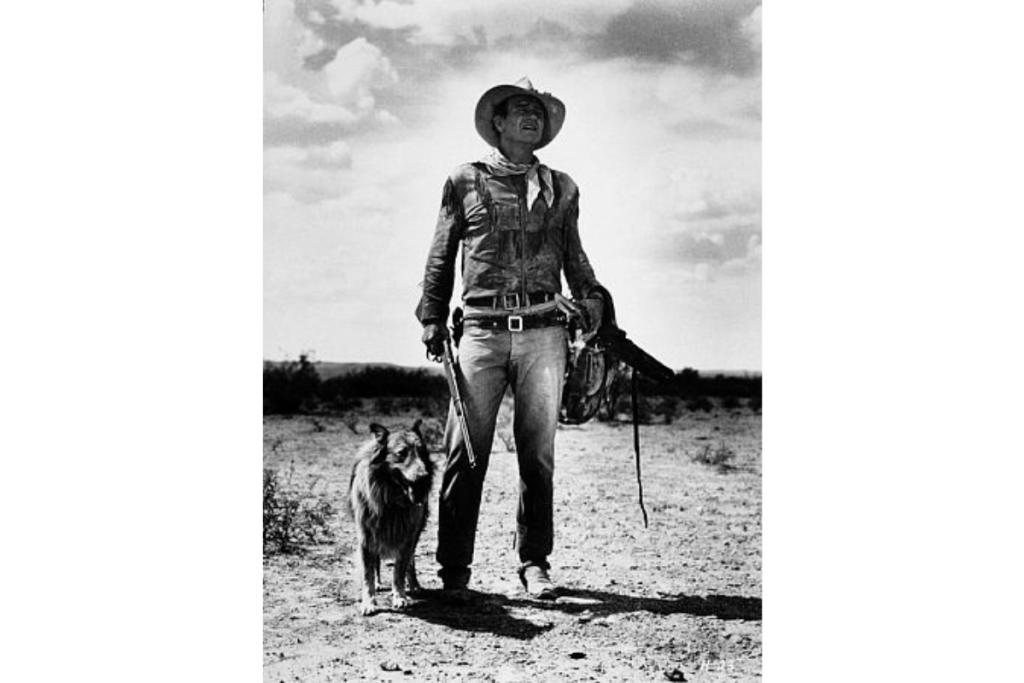
Bud Fraker/Warner Bros.
Hondo Lane is one of the coolest characters in Western cinema, and you can spot his silhouette—a lone gunman and his canine companion—in so many films that came after "Hondo." He's an army scout who honorably defends a single mother and her young son from warring Apaches.
Capt. Dooley - "Island in the Sky" (1953)
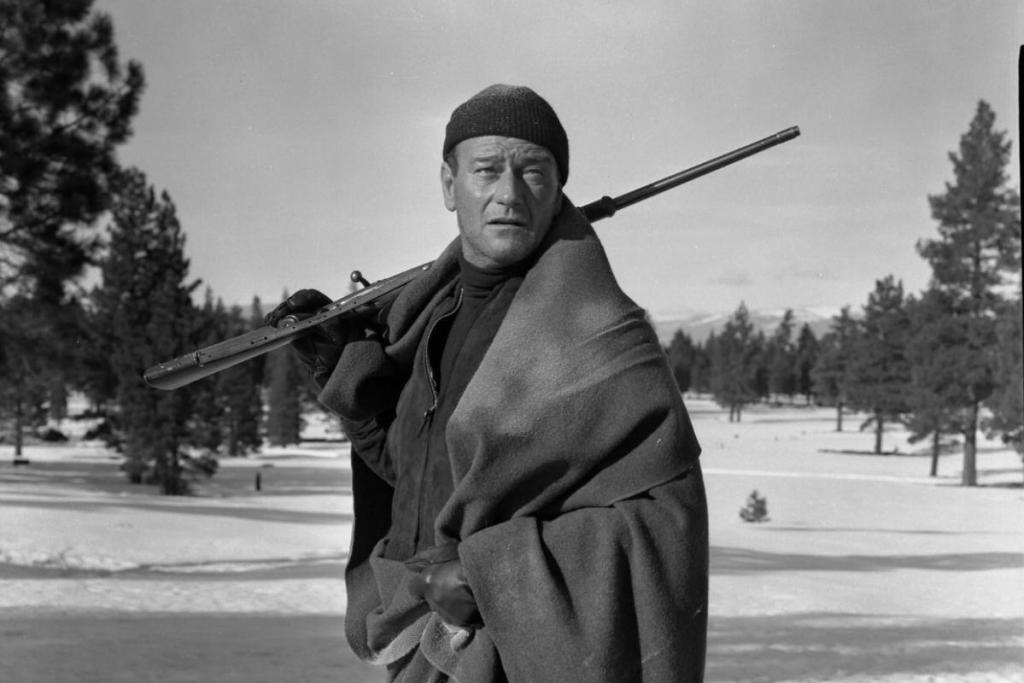
Warner Bros.
Would you trust a man named Dooley with your life? The men of the Corsair transport plane sure did when they emergency-landed in the frozen wasteland of Quebec with precious few beanies among them. In the words of inaugural "Golden Bachelor" Gerry Turner, "Bonne chance!"
Sgt. John M. Stryker - "Sands of Iwo Jima" (1949)
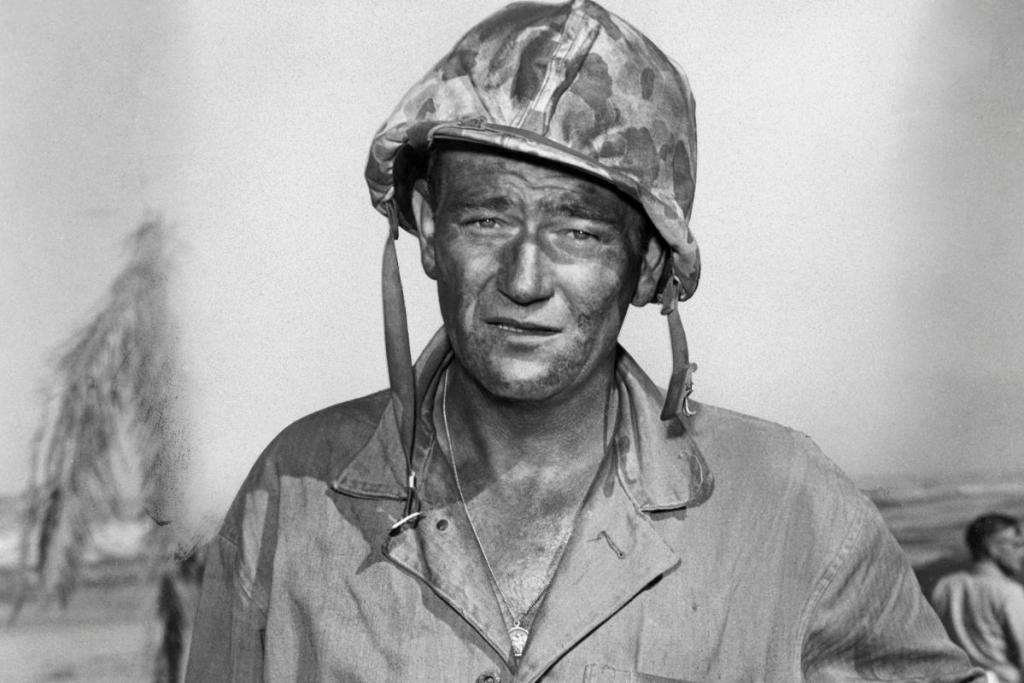
Getty Images
Surprise, surprise: A man named John Stryker isn't the nicest guy in the world. John Wayne earned his first Oscar nomination for his role as the battle-hardened Marine leading a company of soldiers who fear him — that is, until they get a peek behind that rough exterior.
Capt. Nathan Cutting Brittles - "She Wore a Yellow Ribbon" (1949)
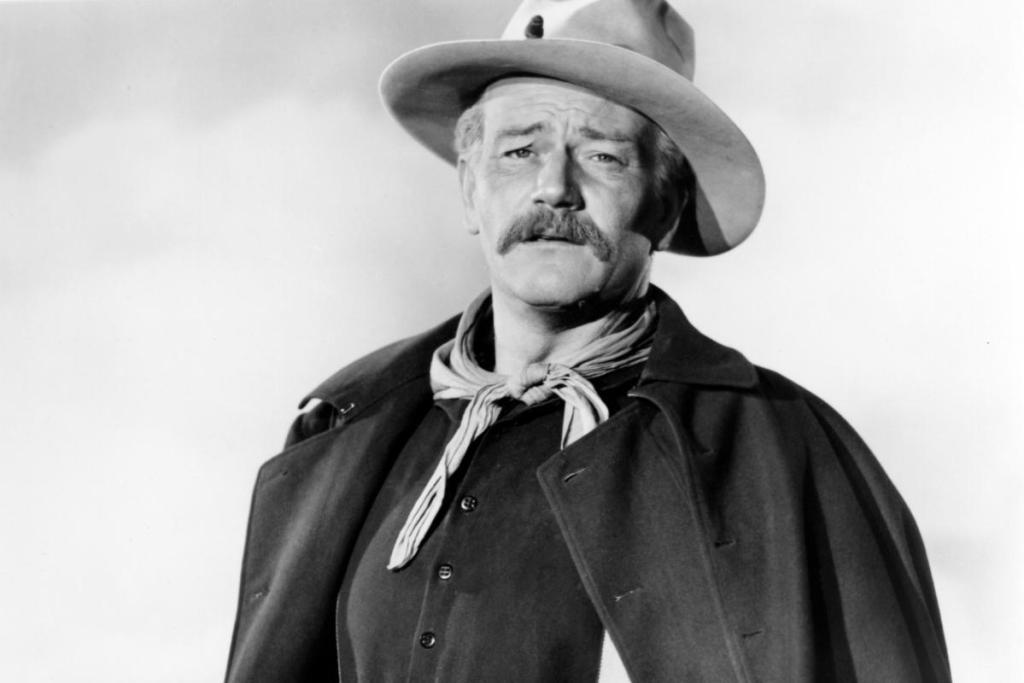
Sunset Boulevard/Corbis/Getty Images
"She Wore a Yellow Ribbon" is a rare glimpse at a mustachioed John Wayne. We all know and love the gold watch scene, but what's the story with Nathan Cutting Brittles? Did his mother hyphenate after marriage? Is Cutting one of those Old Boy family names inserted as a middle name? Or was it just the vibe at the time of his birth?
Robert Marmaduke Sangster Hightower - "3 Godfathers" (1948)
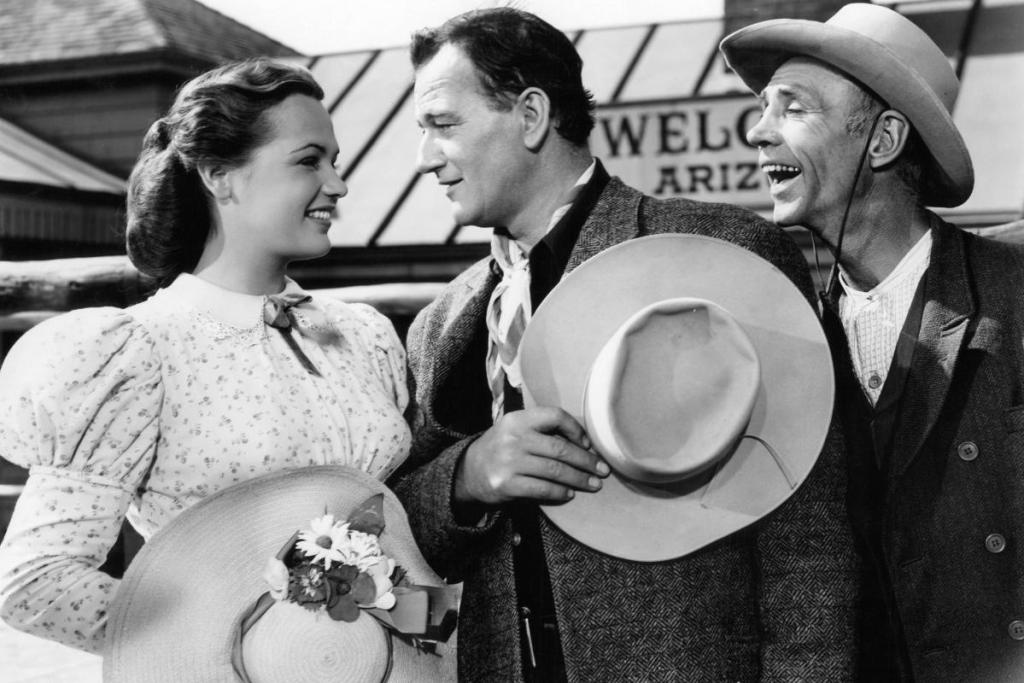
MGM/Getty Images
"Three Godfathers" is basically "Three Men and a Baby," except the men are outlaws plastered on broadsheets across the Wild West — and one of them is inexplicably named Robert Marmaduke Sangster Hightower. No amount of "Call me Bob" can stem the egregiously upper crust connotations.
Quirt Evans - "Angel and the Badman" (1947)
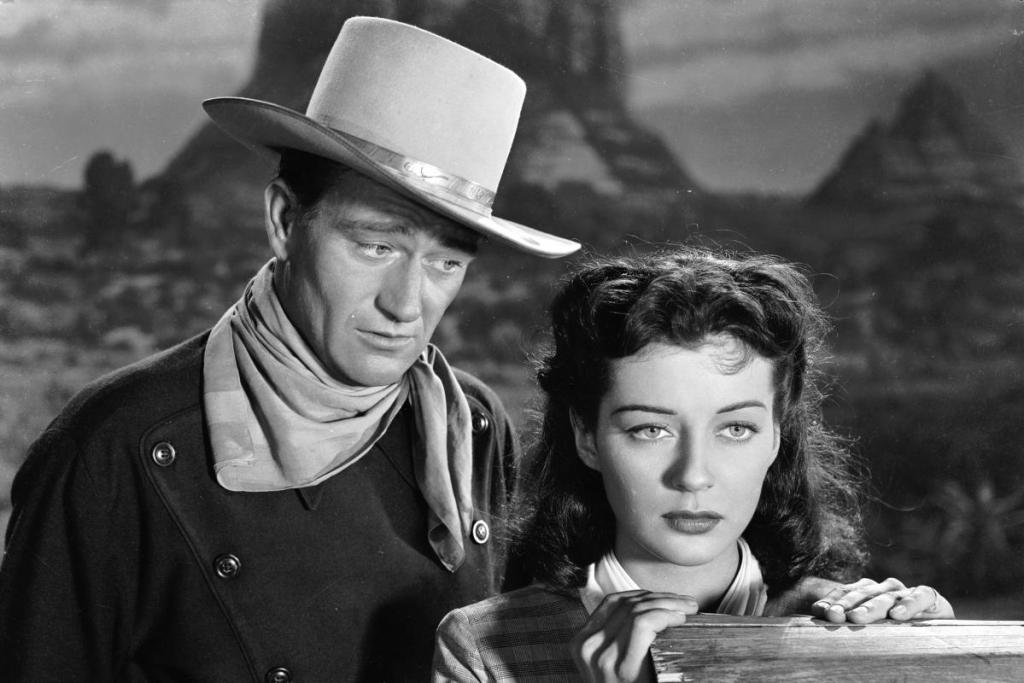
John Kobal Foundation/Getty Images
Quirt Evans is a no-good, very-bad man. Given that Quirt is dangerously close to Squirt, it's surprising he's maintained such a fearsome reputation. There's also a Quaker girl named Penelope Worth and a Marshal named Wistful McClintock. Right on the nose.
Lt. (J.G.) 'Rusty' Ryan - "They Were Expendable" (1945)
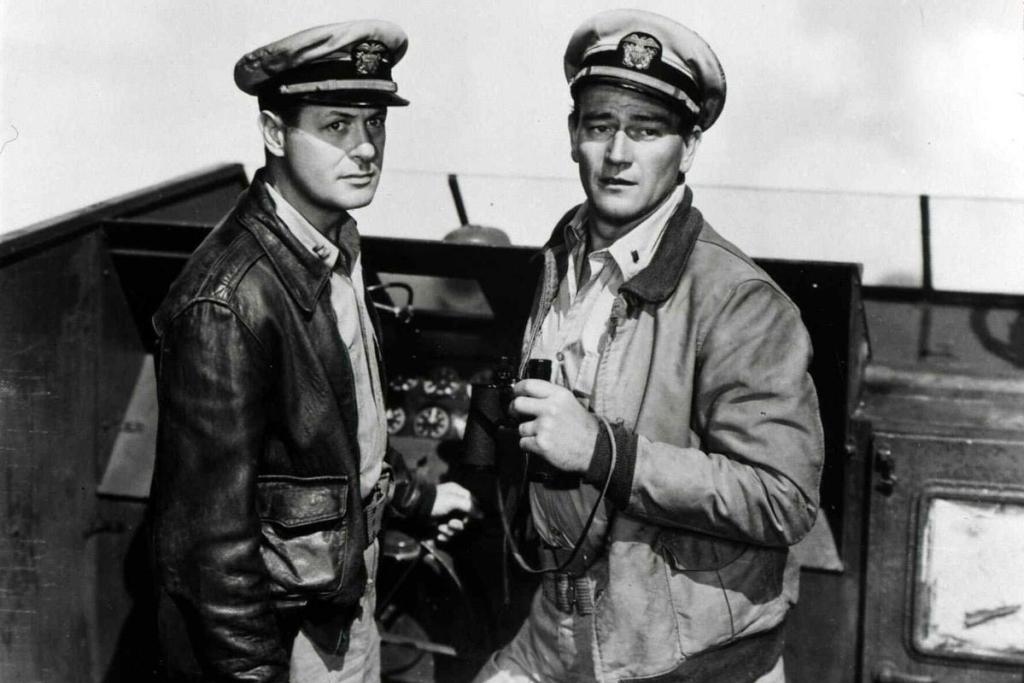
FilmPublicityArchive/United Archives/Getty Images
If there's one thing we've learned from this list so far, it's that John Wayne appreciated alliteration — especially when paired with a super-cool-sounding military title.
The Ringo Kid - "Stagecoach" (1939)
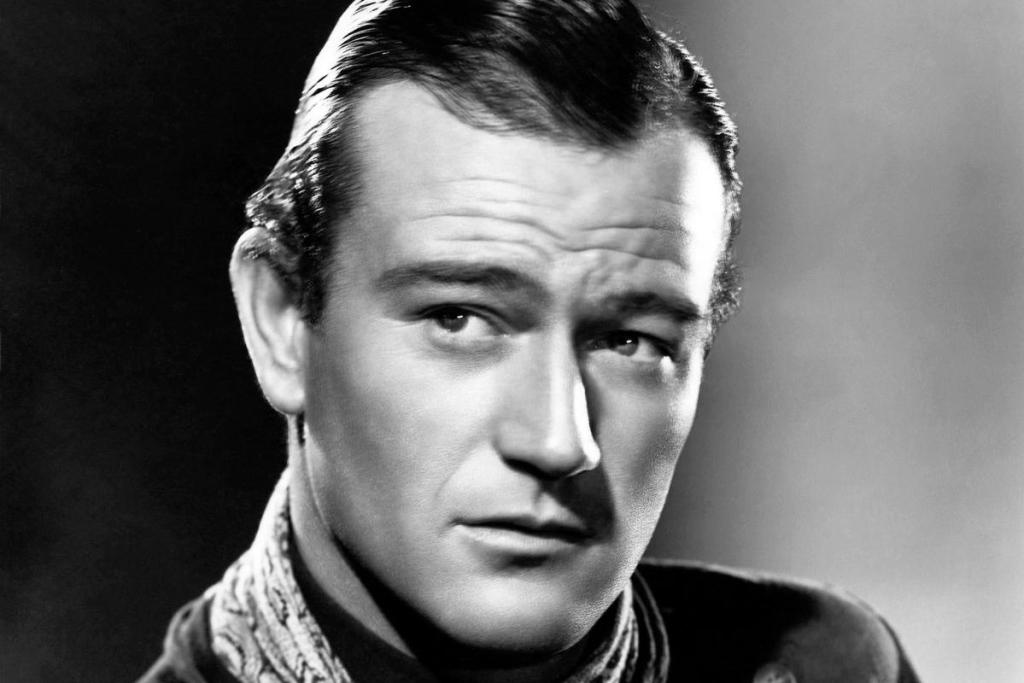
Sunset Boulevard/Corbis/Getty Images
Henry's outlaw alias The Ringo Kid isn't that inventive (see the Old West outlaw Johnny Ringo), but he's a perfect early representation of the vengeful hero archetype Wayne sticks to after "Stagecoach."
Stony Brooke - The Three Mesquiteers Series (1938-39)
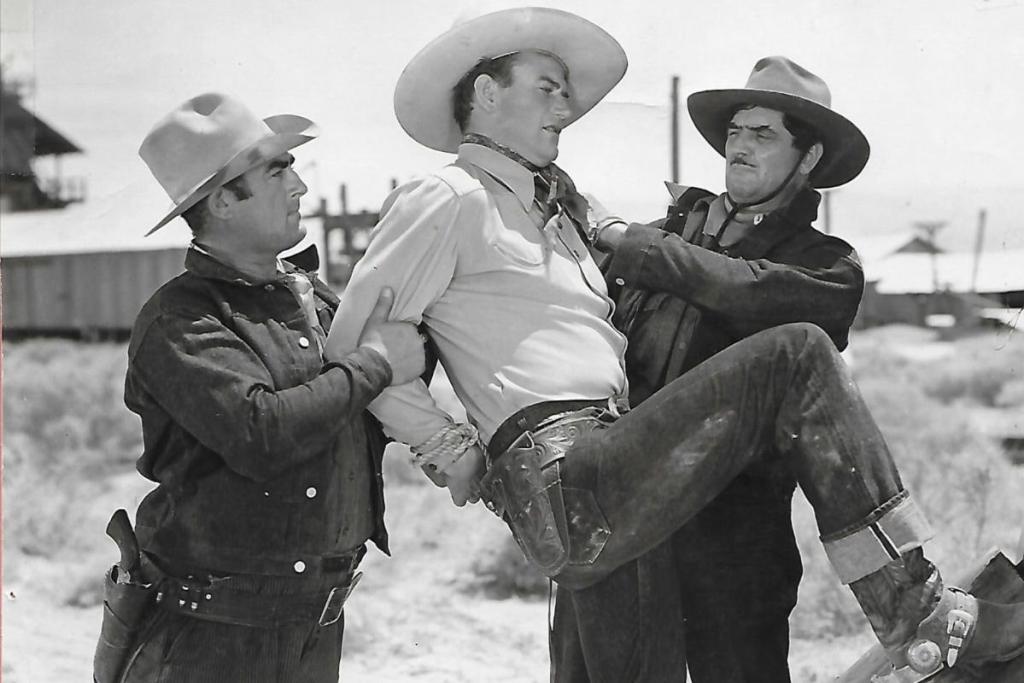
Republic Pictures
John Wayne's Stony Brooke not only had nature-loving parents, but he's also one of The Three Mesquiteers alongside Tucson Smith and Lullaby Joslin. In their first, 55-minute film together, the trio come upon a group of bad men smuggling some element called Monium into Mexico. Vibranium and Unobtainium stand on the shoulders of Monium, cinema's first all-powerful mystery mineral.
Biff Smith - "California Straight Ahead!" (1937)
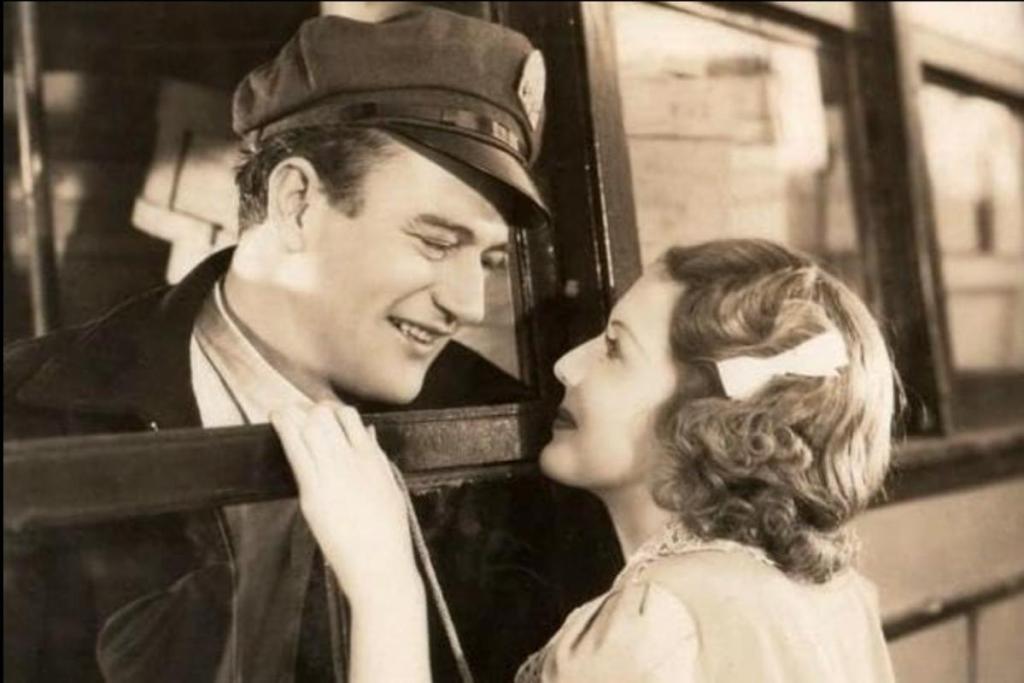
Universal Pictures
Biff Smith is magnificent in its simplicity. Again, we have a near-rhyme that's difficult to pronounce. And if Biff isn't the quintessential underdog name, I don't know what is. He's a former school bus driver now managing a trucking company. His fleet races a freight train to the coast to deliver airplane parts. Sound like "Speed?" Keanu Reeves' character name in that 1994 flick was Jack Traven — an obvious spiritual successor to Biff Smith.
Singin' Sandy Saunders - "Riders of Destiny" (1933)
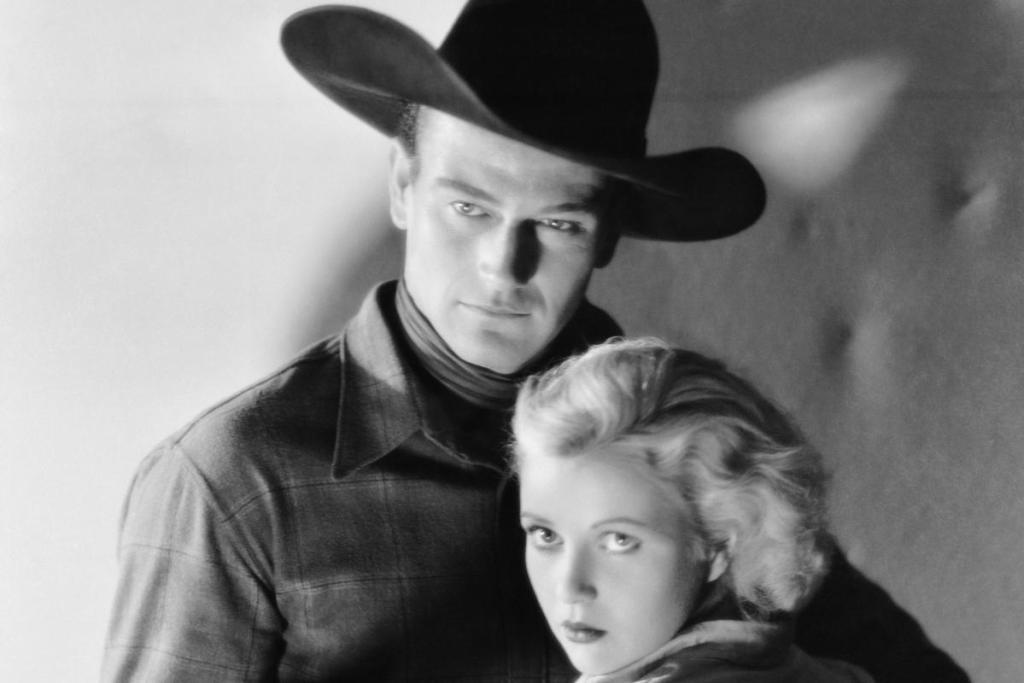
John Kobal Foundation/Getty Images
Sally sells seashells and Singin' Sandy Saunders sings. He first appears in the film crooning and strumming a guitar like the sensitive cowboy he is — only John Wayne didn't do any of the actual singing. It was dubbed in.
